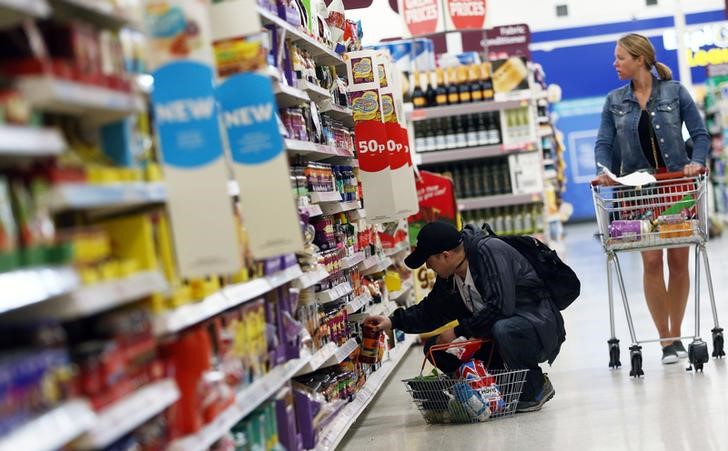Investing.com’s stocks of the week
By Scott Kanowsky
Investing.com -- U.S. headline inflation slowed by more than expected in March, but the gauge of core prices closely watched by the Federal Reserve accelerated slightly following a rise in shelter costs.
According to data from the Bureau of Labor Statistics on Wednesday, the consumer price index for the month dipped to 5.0% from 6.0% in February on an annual basis. Economists had projected that the reading would fall to 5.2%.
It was the smallest 12-month increase since the period ending in May 2021, yet still higher than the Fed's 2% target.
The figure inched down to 0.1% from 0.4% month-on-month, below estimates for growth of 0.2%, with the BLS noting that an uptick in housing rents more than offset a decline in energy prices in March.
Meanwhile, the core number, which strips out volatile items like food and energy, edged up slightly to 5.6% from 5.5% yearly. The monthly rate, meanwhile, slipped to 0.4% from 0.5%. Both measures were in line with expectations.
In the build-up to the publication of the data, attention was reserved for core price growth, in particular, because it is a measure broadly favored by Fed officials currently mulling over a potential easing in a recent campaign of monetary policy tightening. The U.S. central bank has been aggressively raising interest rates in a bid to quell soaring inflation, although last month's ructions in the financial services sector have led some investors to consider the possibility that policymakers may soon pump the brakes on its current hiking cycle.
"Both readings on low end of expectations - but the core level is high enough to keep Fed rate hike in May in play," wrote Kathy Jones, chief fixed income strategist at Charles Schwab, in a tweet after the release of the data.
Later today, investors will get a chance to hunt for further clues about the path ahead for rates when the Fed releases minutes from its latest meeting.
